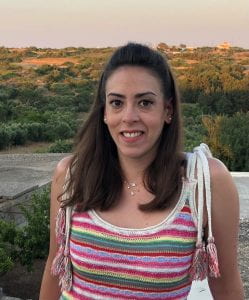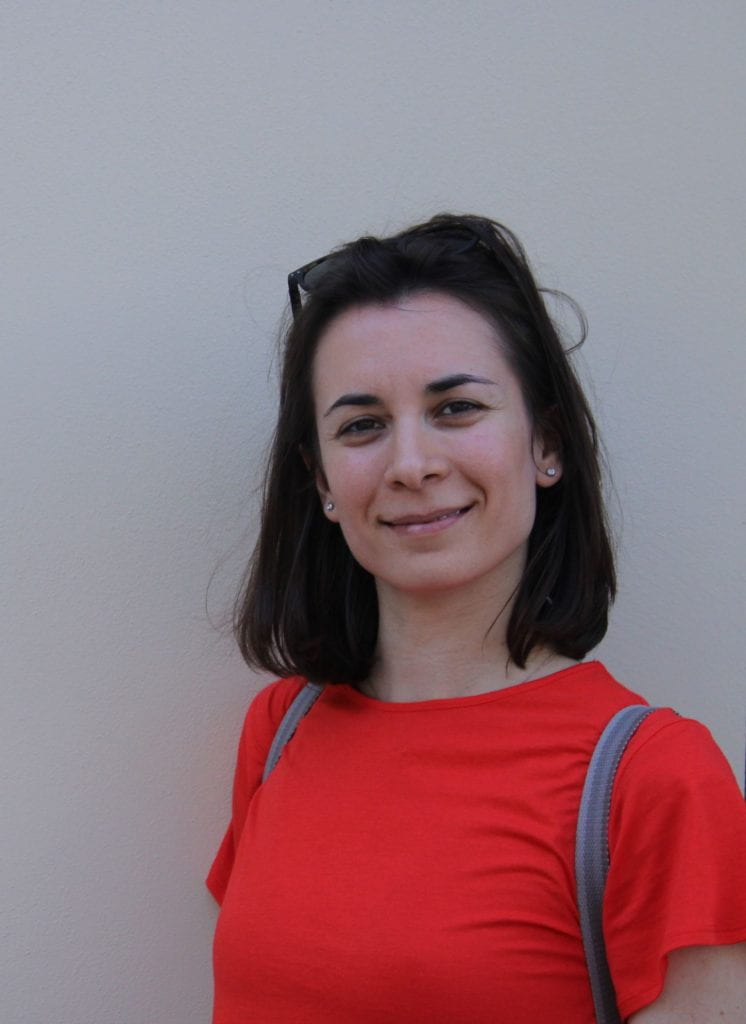Early Career Innovators: Blocking LRG1 in Pancreatic Cancer, Biologics TIN
By Alina Shrourou, on 23 October 2020
In the next interview as part of the Early Career Innovators series, acknowledging the amazing translational work being done by early career researchers within the UCL Therapeutic Innovation Networks, Dr Athina Dritsoula and Dr Carlotta Camilli highlight their joint Biologics TIN Pilot Data Fund awarded project focusing on the effect of LRG1 blockade in pancreatic cancer.
How did this joint project come about?
CC: Athina and I both arrived at the Institute of Ophthalmology to do our post-docs where, weirdly enough, we don’t do eye-related research but explore vessel behaviour using ex-vivo models of angiogenesis and in vivo models of solid tumours.
What is the title of your project and what does it involve?
AD: The interest of our lab is focused on the LRG1 protein, which is involved in pathological angiogenesis, but we don’t know much about its normal function. Based on our research, we believe that blocking the function of the LRG1 protein by using a specific monoclonal antibody that we have developed in the lab will be beneficial in conditions with abnormal angiogenesis like cancer. In fact, LRG1 is upregulated in pancreatic cancer, which is a type of cancer with minimal survival that remains untreated. So, Carlotta and I designed this project to study the effect of LRG1 blockade in pancreatic cancer.
What is the motivation behind your project/therapeutic?
CC: Pancreatic cancer is a leading cause of deaths from cancer that kills about half a million people worldwide each year. The current standard of care involves combination cytotoxic chemotherapy, which often fails due to the complex tumour microenvironment. So, there is a great need for developing novel therapeutic strategies that will target new molecules and pathways, and we believe that our anti-LRG1 antibody could be a great novel therapeutic candidate.
Why did you want to apply to the Biologics TIN Pilot Data Fund?
AD: We both thought that the Biologics TIN Programme is a great opportunity to get enough funding to support a short 6-month project that would allow us to a) test our hypothesis and b) generate pilot data to design a bigger project in future if (a) proves right.
What do you hope to achieve in the 6 months duration of your project?
CC: Well, we hope that we will manage to prove that our hypothesis is correct, and COVID-19 situation allowing, generate data to apply for more funding and get this project further. Our -very ambitious – aim is to get our antibody into clinical trials for pancreatic cancer in a few years’ time!
What are your next steps from now?
AD: Hope that our orders will be delivered on time and that our experiments will work as planned! We need to complete the project before a second lock down crushes.
Do you have any top-tips for applicants currently going through the application process for the other TIN Pilot Data Funds?
AD: The 10 minutes Dragons’ Den round felt much longer than it was! Be well prepared for all types of questions, and maybe have a mock interview with your PI, if possible.
CC: Spend enough time to prepare the slide presentation. It might seem easy but it’s not, as it needs to be very concise and straight forward!
About Dr Athina Dritsoula
Dr Dritsoula studied an undergraduate degree in Molecular Biology and Genetics in Greece over a decade ago before arriving in the UK for a Master’s and PhD, and UCL has been home to Dr Dritsoula since. Although human genetics was Dr Dritsoula’s first love, Dr Dritsoula quickly found her “forte” in vascular biology – studying the biology of big human vessels during a PhD, and then smaller vessels stability and angiogenesis during post-doc.
About Dr Carlotta Camilli
After completing a Master’s in Medical Biotechnology, Dr Camilli left Italy to start a PhD at UCL focusing on the use of vascular progenitors for the development of a bioengineered muscle.
However, Dr Camilli’s broad interest in translational medicine pushed her to explore a different pathological context during post-doc, namely the tumour angiogenesis. Dr Camilli found jumping on this new field a difficult but exciting challenge!
 Close
Close


